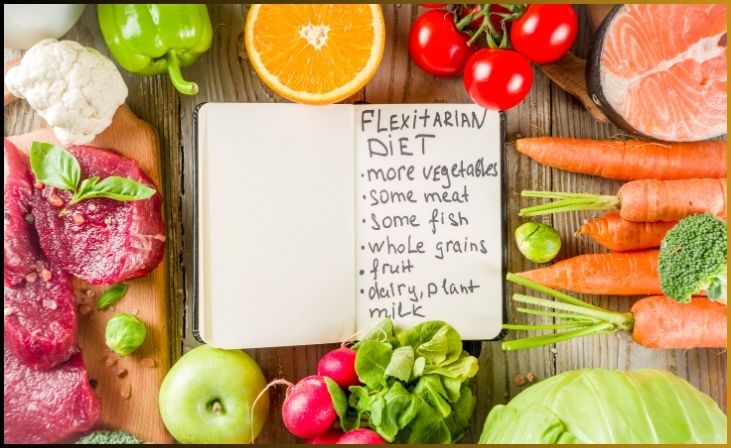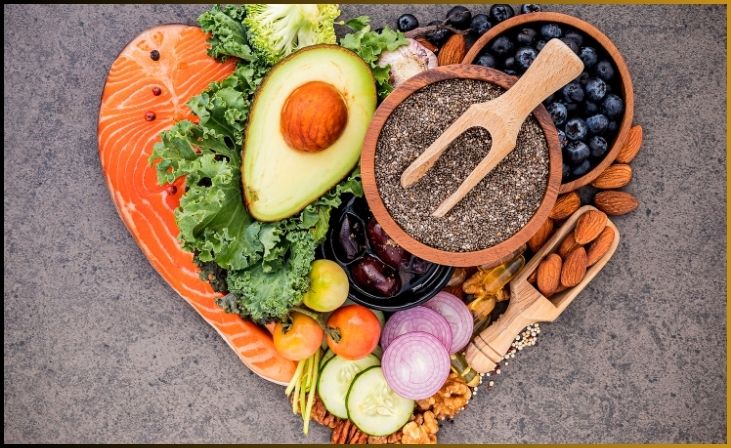In the quest for weight loss, finding the right diet plan can be a daunting task. With so many options available, it’s crucial to choose a plan that not only suits your lifestyle but also ensures sustainable and healthy weight loss. To help you navigate through the sea of diet plans, we have curated a list of the seven best diet plans for weight loss. These programs have been meticulously selected due to their efficacy, scientific support, and favorable user reviews. Whether you’re looking for a low-carb approach, a plant-based diet, or a balanced meal plan, there’s something for everyone on this list. So, let’s dive in and discover the diet plan that will kickstart your weight loss journey.
Table of Contents
ToggleBest Diet Plans For Weight Loss
Embarking on a weight loss journey requires more than just determination; it requires a well-structured and sustainable diet plan. In this exploration, we’ll dive into seven of the best diet plans for weight loss, each offering a unique approach to achieving a healthier and fitter you.
1. Mediterranean Diet

The Mediterranean Diet transcends mere dietary guidelines; it embodies a holistic lifestyle centered around whole, unprocessed foods. This method places an extreme value on consuming foods high in nutrients, such as fruits, vegetables, whole grains, lean meats, olive oil, or other heart-healthy fats. The Mediterranean diet is well-known for its numerous benefits, which include cardiac health and efficient weight loss. It differs not only by what is eaten but also by the thoughtful and well-balanced approach to meals. Following this way of life develops a deep connection to the variety and quality of food, which makes it a fun and sustainable route to well-being.
2. Low-Carb Diet

The Low-Carb Diet stands as a prominent strategy for weight loss, leveraging the effectiveness of reduced carbohydrate intake. This approach involves substituting carbs with a focus on proteins and healthy fats, contributing to the stabilization of blood sugar levels, curbing cravings, and fostering sustainable weight loss. By emphasizing nutrient-dense alternatives, this diet not only aids in shedding excess pounds but also promotes a balanced approach to fueling the body. The reduction of refined carbohydrates is key, encouraging the consumption of whole, unprocessed foods that support overall well-being. This dietary shift is a testament to the impactful role that mindful carb management can play in achieving lasting weight loss and improved metabolic health.
3. DASH Diet

Beyond its primary focus on blood pressure management, the Dietary Approaches to Stop Hypertension (DASH) diet emerges as a commendable choice for weight loss. Emphasizing an extensive variety of nutrient-dense foods, such as whole grains, fruits, vegetables, lean meats, and low-fat dairy products, the DASH diet offers an effective and satisfying approach to losing extra weight. By incorporating these wholesome elements, the diet not only contributes to weight management but also promotes overall health. Its emphasis on balanced nutrition underscores the importance of adopting sustainable dietary habits, making the DASH diet a holistic and effective strategy for those seeking both weight loss and improved well-being.
Quick Link: The 10 Best Starbucks Drinks for Weight Loss
Don't just scroll, subscribe!
BuzzTrail's unique web-stories are the cure for boredom you've been waiting for.
4. Flexitarian Diet

The Flexitarian Diet seamlessly blends flexibility with the goodness of plant-based eating. Encouraging a predominantly plant-centric approach, it offers the freedom to include occasional servings of meat and animal products. This flexible and sustainable dietary strategy not only facilitates weight loss but also celebrates a diverse array of foods. Promoting a predominantly plant-based focus aligns with the principles of mindful and balanced nutrition. This approach encourages individuals to enjoy the health benefits associated with plant-based diets while accommodating personal preferences. Because of its focus on variety and sustainability, the Flexitarian Diet distinguishes out as an inclusive and flexible strategy that promotes an easy and achievable road toward weight loss.
5. Intermittent Fasting
Intermittent Fasting transcends traditional dieting; it’s a distinctive eating pattern that alternates between periods of fasting and eating. This approach goes beyond simple calorie reduction; it actively contributes to effective weight loss by enhancing insulin sensitivity and optimizing metabolic health. By embracing intermittent fasting, individuals engage in cycles of nourishment and fasting, allowing the body to tap into stored energy reserves for fuel. This not only aids in calorie intake reduction but also promotes metabolic efficiency. The intermittent fasting approach emphasizes not just what one eats but when providing a holistic and sustainable method for achieving weight loss while prioritizing overall health and well-being.
6. Ketogenic Diet

The Ketogenic Diet, commonly known as the keto diet, stands out as a low-carb, high-fat regimen strategically crafted to induce a state of ketosis in the body. In this metabolic state, the body shifts from using carbohydrates to burning fats for fuel, facilitating rapid weight loss. While celebrated for its effectiveness, the keto diet demands meticulous adherence to its specific dietary guidelines. These recommendations call for a large decrease in carbohydrate consumption, a boost in nutritious fats, and a substantial intake of protein. The success of the keto diet lies in the metabolic shift it initiates, making it imperative to carefully navigate its nutritional requirements for optimal and sustainable weight loss.
7. WW (formerly Weight Watchers)

This lasting weight reduction program, originally known as Weight Watchers and renamed WW, has retained its appeal throughout time. WW has a special point system that gives different food values and encourages an adaptable and balanced eating style. One of the program’s unique features is that it adapts to different lifestyle choices and preferences. By emphasizing a personalized journey, WW encourages participants to make mindful and informed food choices within their allocated points.
This adaptability is a key factor in the program’s success, allowing individuals to navigate their weight loss journey according to their unique needs. The long-lasting attractiveness of WW is its ability to adapt to the rapidly changing field of nutrition, offering a personalized and sustainable strategy for reaching and maintaining a healthy weight.
Bottom Line
As we conclude our exploration of the seven best diet plans for weight loss, it’s evident that the ideal approach varies from person to person. The key is to find a plan that aligns with your goals, preferences, and lifestyle. Whether you opt for the nutrient-rich Mediterranean diet, the low-carb high-fat paradigm of the Ketogenic diet, or the disciplined intermittent fasting routine, each plan offers unique benefits. Based on user feedback, scientific support, and efficacy, these strategies have been carefully selected. Choose wisely, stay consistent, and embrace the transformative power of making mindful dietary choices.
FAQs
1. How do I choose the right diet plan for me?
1. How do I choose the right diet plan for me?
Finding the ideal diet plan requires taking your lifestyle, food choices, and health objectives into account. Evaluate the principles, restrictions, and long-term feasibility of each plan to find the one that aligns with your needs.
2. Can I combine parts from several diet plans?
2. Can I combine parts from several diet plans?
Yes, some people have success mixing aspects of several nutrition regimens. But it’s crucial to make sure that everything works together and to stay away from contradicting ideas. Seeking advice from a dietitian or medical practitioner might provide tailored direction.
3. Is rapid weight loss safe?
3. Is rapid weight loss safe?
While some diet plans may lead to rapid initial weight loss, sustainable and healthy weight loss is generally gradual. Extreme and rapid weight loss methods may pose health risks, so it’s crucial to prioritize long-term well-being over quick fixes.
4. How important is physical activity in weight loss?
4. How important is physical activity in weight loss?
Physical activity plays a crucial role in weight loss by enhancing calorie expenditure and promoting overall health. Combining a balanced diet with regular exercise is often the most effective approach for achieving and maintaining a healthy weight.

